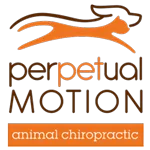Scientists and philosophers have pursued the notion of mind for thousands of years. [Of course, being able to think about the mind's origins and place in the universe presumes having a mind, but that's a separate piece of this puzzle.] Regardless of mind's origin, we are well aware that the human mind interacts intimately with the human body and vice versa.1
For example, the notion of stress cuts both ways. Psychological stress, stemming from troubles in the workplace or family difficulties, often results in physical pain. A person's headaches, lower back pain, or even annoying numbness and tingling in the fingers may originate in their personal daily stresses. From the opposite perspective, chronic headaches, persistent lower back pain, or ongoing sciatica can cause a person to become anxious or even depressed. Physical and mental states are deeply connected.
For many persons it's almost impossible to determine the first cause, to determine whether their problems started in the mind or in the body. Ultimately, such a distinction may not be necessary. A person might begin to regain their mental balance by learning how to meditate or learning a new activity or skill.2,3 Learning how to draw, studying Italian, or taking photography or astronomy classes may be all that's needed to alleviate certain stressful mental states. As the person learns the skill of focusing on the task at hand, repetitive stressful thoughts begin to dissipate and mental ease and clarity begin to return. As a result, physical pains begin to diminish.
Approaching a person's problems from the physical side first may achieve the same benefits. For example, engaging, demanding physical activity may be the key missing ingredient in a person's life. Regular physical activity makes the heart and lungs stronger, providing more healing nutrition to all of the body's cells, tissues, and organs. Regular physical activity helps eliminate toxic metabolic waste that would accumulate otherwise. And regular physical activity causes the brain to produce endorphins, an opiate-like neurotransmitter that induces the experience of ease, well-being, and euphoria. The body learns to relax as it engages in these healthful activities. Overall physical tension and pain begin to resolve, leading to overall reductions in mental stress, anxiety, and depression.
Mind and matter are not separate and distinct. For a person to be really healthy these two components of human nature need to be much more fully engaged, on a much more regular basis than is the case for most of us. As we become more awake and aware, improved health and well-being will follow naturally.
